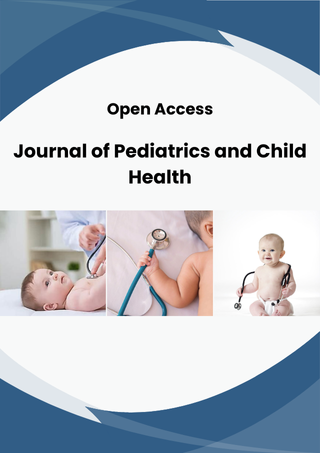INTRODUCTION
The neonatal period defined as the first 28 days of life is the most critical stage in child survival and development. Despite global progress in reducing under-five mortality, neonatal deaths account for nearly half of all childhood deaths worldwide. Improving neonatal care is therefore central to achieving sustainable health outcomes. The first hours and days after birth present a narrow but decisive window of opportunity during which timely and appropriate interventions can prevent a significant proportion of preventable deaths.
Most neonatal deaths are caused by preventable and treatable conditions such as prematurity, birth asphyxia, infections, and complications during labor and delivery. Ensuring access to skilled birth attendants, essential newborn care, immediate and exclusive breastfeeding, thermal protection, clean cord care, and prompt management of complications are proven strategies that significantly improve survival rates.
Moreover, strengthening maternal health before and during pregnancy is equally vital, as the health and nutrition of mothers directly influence neonatal outcomes. Equitable access to quality antenatal care, safe delivery services, and postnatal follow-up can reduce risks and foster healthy growth from the very beginning of life.
Addressing neonatal mortality also requires investments in health systems, including training of healthcare workers, provision of essential medicines and equipment, community-level awareness programs, and robust referral mechanisms. By prioritizing neonatal health within broader child and maternal health strategies, countries can break the cycle of preventable deaths and ensure that every newborn has the best possible start to life.
Multiple factors contribute to neonatal morbidity and mortality, including complications of prematurity, intrapartum-related events, infections, and congenital anomalies. Many of these conditions are not only preventable but also treatable when evidence-based interventions are accessible and implemented effectively. Practices such as skilled birth attendance, early initiation of breastfeeding, skin-to-skin contact, and infection prevention remain cornerstones of care. Yet, persistent gaps in coverage, quality, and equity continue to limit their global impact, particularly in low- and middle-income countries where neonatal mortality rates remain disproportionately high.
Key Priorities in Neonatal Care
Ensuring Safe Birth Practices
• Skilled birth attendants and hygienic delivery environments prevent infections and birth complications.
• Immediate drying, warmth, and skin-to-skin contact (Kangaroo Mother Care) improve survival rates, especially in preterm or low-birthweight infants.
Respiratory Support
• Neonatal respiratory distress is one of the leading causes of mortality.
• Advances in Continuous Positive Airway Pressure (CPAP), low-cost oxygen delivery systems, and surfactant therapy are transforming outcomes in resource-limited settings.
Nutrition and Feeding
• Exclusive breastfeeding within the first hour of life reduces neonatal mortality.
• Human milk fortifiers and donor milk banks provide alternatives when mothers cannot breastfeed.
• Early initiation of feeding also supports gut microbiome development, reducing risks of necrotizing enterocolitis (NEC).
Infection Prevention and Antibiotic Stewardship
• Neonatal sepsis is a major concern, increasingly complicated by antimicrobial resistance (AMR).
• Priorities include:
• Hand hygiene and sterile procedures in neonatal intensive care units (NICUs).
• Rational antibiotic use and updated local protocols based on resistance patterns.
• Development of rapid diagnostics for early detection.
Neurodevelopmental Care
• Interventions such as early physiotherapy, auditory/visual screening, and parental bonding activities improve long-term outcomes.
• NICUs are moving toward developmentally supportive care, reducing stressors (noise, light, painful procedures) that impact neurological growth.
Emerging Advances
• Point-of-Care Technologies: Portable ultrasound, non-invasive bilirubin meters, and low-cost incubators are expanding access to critical diagnostics.
• Tele-NICU Models: Remote neonatal care consultation allows specialists to guide local providers in underserved areas.
• AI-Driven Monitoring: Machine learning models are being developed to predict sepsis, hypoxia, or growth delays before symptoms become severe.
Your influence is not defined by your title. It is defined by your consistency, integrity, and ability to show up even when no one is watching.
Global Challenges
• Inequity in Access: Nearly 80% of neonatal deaths occur in low- and middle-income countries due to lack of infrastructure and trained personnel.
• AMR Threats: Resistant pathogens undermine traditional antibiotic regimens.
• Workforce Gaps: A shortage of neonatologists and trained NICU nurses limits care delivery.
• Sustainability: Many life-saving technologies are unaffordable or unavailable in rural health systems.
CONCLUSION
Neonatal care remains a cornerstone of pediatric health and a decisive factor in shaping the survival and development of future generations. Strengthening basic newborn care, improving maternal health services, and ensuring timely interventions during the critical first 28 days of life are central to reducing preventable deaths. Expanding access to neonatal intensive care units, advancing infection prevention and antibiotic stewardship, and promoting evidence-based practices such as early breastfeeding and Kangaroo Mother Care can substantially improve outcomes. At the same time, emerging innovations including point-of-care diagnostics, telemedicine, and artificial intelligence offer new opportunities to close gaps in care delivery, particularly in low-resource settings. Equity must remain at the heart of these efforts. Global initiatives and national health systems should work together to ensure that no newborn is denied access to lifesaving interventions due to geography, socioeconomic status, or systemic limitations. Ultimately, investing in neonatal care is not only a moral imperative but also a strategic investment in sustainable health systems and human development. Every newborn deserves the chance to survive, thrive, and contribute to the future of their community and the world
Indexed In
DOAJ
CrossRef
PubMed
MEDLINE
ResearchBib
OAJI
Sindexs
EBSCO A-Z / Host
OCLC - WorldCat
Journal Flyer


